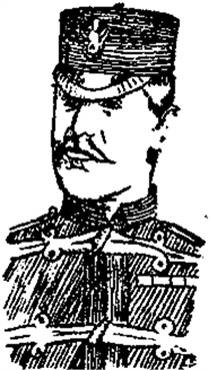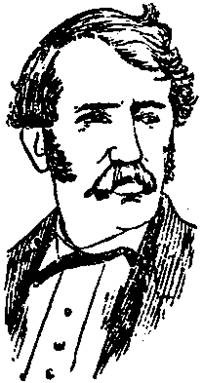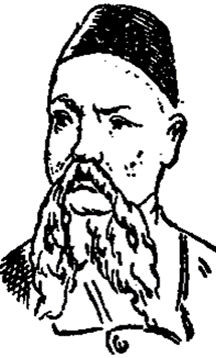This article has been transcribed from a copy of the Cardiff Times in the online collection of scanned Welsh newspapers 1804-1919 in the National Library of Wales, with grateful recognition of the free access accorded to all readers. Paragraph breaks have been introduced for easier reading.
'have' in the second paragraph has not been changed to 'has', as today's grammar might suggest, since Samuel might be correctly deploying the now unpopular present subjunctive.
“heroes and hero worship” refers to Thomas Carlyle’s famous On Heroes, Hero-Worship and the Heroic in History.
Henry Morton Stanley and Imperialism
Henry Morton Stanley (1841-1904) was a Welsh-American journalist, explorer, soldier, colonial administrator, author and politician who was famous for his exploration of central Africa and his search for David Livingston. He was knighted in 1899. The heroic status he was accorded by the Victorians has been thoroughly overturned since. A charitable view of his career is that having survived for ten years of his childhood in the workhouse at St Asaph, he needed as a young man to be thought of as harder and more formidable than other men. This may in some part explain his extravagant punishments and many hostile encounters, which, some argue, he even exaggerated in published accounts. There has been a complete revision of his reputation in the late twentieth century, and his role in establishing the personal empire of the King of the Belgians in the Congo has been deplored on many counts. The subject is too immense for an introductory note. An eminent poet and statesman, David Rubadiri, identified Stanley's meeting with Mutesa as the moment 'the West [was] let in' to central Africa. (See his early 1960s poem 'Stanley Meets Mutesa'.)
If there are some disputes about Stanley's reputation, that of Edmund Musgrave Barttelot (1859-88) is utterly negative, and there are few people who do not find him loathsome. He was a British army officer who became notorious after his brutal and deranged behaviour during his disastrous command of the rear column in the Congo during Stanley's Emin Pasha Relief Expedition. A fellow officer, John Rose Troup, said that the Major 'had an intense hatred of anything in the shape of a black man' (Jeal 357-58). He is considered by many to be the source for Kurtz in Joseph Conrad's novel Heart of Darkness (1899). —— David Skilton

f the average schoolboy were asked to write a description of an explorer he would, in all probability, write as follows :—'An explorer is a man who goes a long way to see things, and then comes back home again and writes about them. And, taken as a broad definition, it would not be a bad one.
Of late, explorers and their ways have been much en evidence, and it is to be regretted that some exposition of their modus operandi have been placed before the public. Few, if any, public idols are perfect when the curtain is drawn aside, and the petty details of their lives are shown in all their nakedness. Public idols should be taken, as are many other things in this world – on faith; and unless the public desires to dispel a popular illusion, no attempt should be made to reveal the how and why of their actions.
Heroes should always be considered as immaculate as poor humanity can be, else they will cease to hold their place of pride in the eyes of the populace. So long as a valuable work of art remains perfect it is a source of pleasure and a cause of admiration. But once it gets in any way defaced or its beauty fades it is relegated to the oblivion of the lumber room.
And it is the same with heroes and hero worship.
The explorer and the burglar are always safest when they work single-handed, for in both cases the absence of comrades ensures an immunity from detection which is of considerable value. It has long been recognised as a curious phase of human nature that no two persons seeing the same occurrence describe exactly alike. Why this is, or should be, I could never quite see, but in spite of all argument the fact remains that it is so.

Stanley.
Now this being so, it is hardly a matter for surprise that when an explorer goes out on his travels accompanied by other people he and they often get at variance as to the details of their work and discoveries. Whereas if an explorer goes out to a strange land single-handed he comes back and tells his tales of adventures with no fear of contradiction or controversy. When a scientist stated to a class of students that the sun was a certain distance from the earth he added for the benefit of any sceptics present, 'If you don't believe it you can count it for yourselves.'
The scientist and the single-handed explorer sail in the same boat as far as unbelievers are concerned. It cannot but be annoying to a man who has been out on an exploring expedition, and who has endured many trials and hardships to be told by a stay-at-home lot of cynics that they doubt his tale as written in the [the] inevitable 2 vols. 8vo.
Such treatment is apt to produce an impression that the game is hardly worth the candle.
And, indeed, were it not for other more sordid considerations than the geographical and scientific one usually adduced, the trouble would certainly not be worth taking.
When explorers are accompanied by an escort and have with them a staff of officers, the result is generally a series of stories which do not coincide in detail, and which occasionally vary all as to actual fact.

Major Barttelot.
We have before us at the present time a sad and regrettable instance of this in the discussion occupying the attention of world, re Mr H. M. Stanley and the late Major Barttelot. While Mr Stanley brings the gravest and most revolting charges against his late officer, others refute indignantly his statements. As with others, so is it with explorers. Human nature is the same all the world over, and jealousy is as likely to crop up during an exploring expedition as anywhere else. When this is the case it is hardly to be wondered at that men differ in their opinions and statements as to what occurred under certain circumstances.
Jealousy and spite appear to me to be the cause of all the bother in the Stanley-Barttelot scandal, and it is a great pity that the relatives of the unfortunate officer stirred the matter up at all. They are certainly getting the worst of the fight, and are doing much harm to the memory of their departed kinsman. Old World explorers and latter day investigators appear to be built upon different lines – and the advance of civilisation has certainly not advanced in thoroughness and honesty of purpose.
Fancy Columbus taking part in such a controversy as the one just named

Livingstone.
The old explorers went out with a mission for [for] the good of humanity, and no motives beyond scientific research and the welfare of their follows prompted their labours.
Self-glorification they dreamt not of, and more than one of them had paid the penalty of his mission, and lies unprayed for and unknown in his silent grave in a far lone land.
No desire for personal fame surrounded the labours of Marco Polo, Sir John Mandeville, Dias Vasco de Gama, Jacques Cartier, Sir Walter Raleigh, William Barenz, or Martin Frobisher. They went on their voyages at much risk and with but little or no help. They had no Relief Committees or public funds to back them up, and when they set out upon an expedition they know the odds were against their ever returning. No banquets, no freedoms of cities, and no degrees awaited them at every turn and corner were they lucky enough to return alive.

Sir Richard Burton.
They were the pioneers of discovery, and if some of the more recent of their disciples have done more work in less time they have not done it with a better heart or with more thoroughness or earnestness.
While we are lavishing our praise and presents on the explorers of to-day who go out to thrash and slaughter the savage equipped with all the trappings of war, let us not forget the men who, in the most primitive fashion, opened out the unknown corners of the world to the rest of their fellows.
It is so easy to forget, and in the midst of the triumphs of the present the records of the past are apt to fall into the shade, and to be relegated to the oblivion of forgetfulness.
Links to Related Material
- Victorian Explorers (homepage)
- The British Empire (homepage)
- Victorian Racism
- Punch on Livingstone’s discovery of the source of the Nile
Bibliography
Jeal, Tim. Stanley: The Impossible Life of Africa's Greatest Explorer Yale UP, 2007.
Jeal, Tim. Explorers of the Nile: The Triumph and Tragedy of a Great Victorian Adventure. London: Faber, 2011. [review in the Victorian Web].
Last modified 20 April 2022